Introduction
For thousands of years, medicinal plants have been used for their healing properties in traditional medicine practices all around the world. From the aloe vera plant's soothing gel to the chamomile flower's calming tea, these plants have been proven to have numerous health benefits and can provide natural remedies for a wide range of ailments.
Growing your own medicinal plants is not only an excellent way to take control of your health and well-being, but it can also be a rewarding and cost-effective hobby. Whether you have a large backyard or just a small balcony, there are plenty of medicinal plants that you can grow yourself with minimal effort and maintenance.
In this blog post, we will explore the top ten medicinal plants that you can grow at home, their benefits, and how to use them safely and effectively. By the end of this article, you'll have a good understanding of how to start your own medicinal herb garden and how to incorporate these natural remedies into your daily life.
Criteria for Selecting Medicinal Plants to Grow
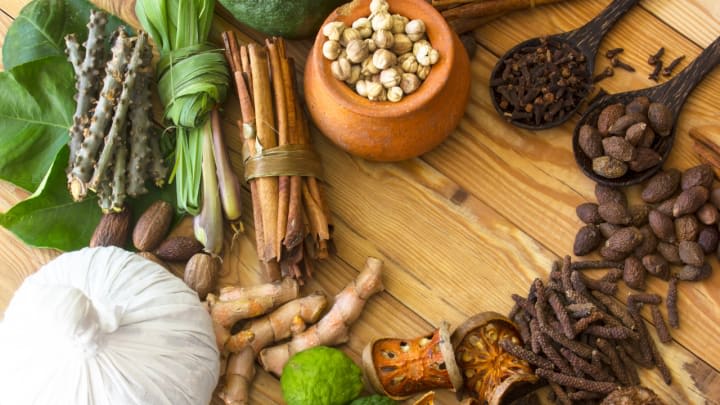
When it comes to selecting medicinal plants to grow, there are a few key factors to consider. Here are some of the criteria we used to select the top ten medicinal plants for this article:
- Health benefits - One of the most important factors to consider when selecting medicinal plants is their health benefits. We focused on plants that have been scientifically proven to have medicinal properties and can provide natural remedies for a wide range of ailments.
- Ease of growth - We wanted to select plants that are easy to grow, even for those who don't have a green thumb. We chose plants that are low-maintenance, don't require a lot of space, and can thrive in a variety of growing conditions.
- Availability - It's important to choose plants that are readily available and can be grown in your region. We selected plants that are commonly found in garden centers, nurseries, and seed catalogs.
- Versatility - We chose plants that can be used in a variety of ways, whether it's making teas, tinctures, or topical applications. This allows for greater flexibility in how the plants can be used and makes them more valuable additions to your herb garden.
- Safety - While many medicinal plants are safe for most people to use, it's important to consider any potential side effects or interactions with medications. We selected plants that are generally considered safe for most people to use, but we also included cautionary notes where necessary.
By using these criteria, we were able to identify the top ten medicinal plants that are easy to grow and can provide numerous health benefits. Whether you're new to gardening or have years of experience, these plants are sure to be valuable additions to your herb garden.
Top Medicinal Plants to Grow
- Chicory – The Painkilling Plant You Should Grow in Your Backyard:
Quick Backyard Remedy: Add 1 Tbsp of ground chicory root to your coffee or tea. It’s a prebiotic and natural laxative that will help move things along and regulate your bowels.
Garden uses: Chicory is a very good soil builder in your garden, pulling nutrients up from deeper in the soil with its long taproot and then returning them to the surface when it dies back.
Recipes You'll Find in Brochure: Chicory salve for pain relief, chicory coffee for better digestion, a decoction for adrenal fatigue, chicory infusion for sinuses, anti-fungal poultice, liver protection tincture.
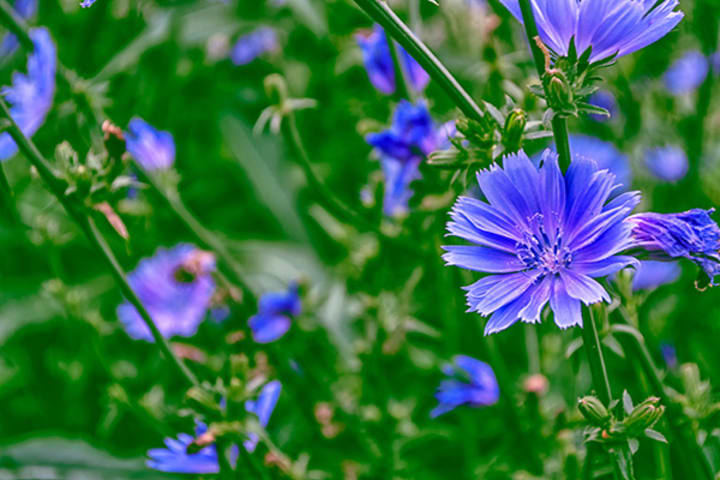
- Yarrow – The Backyard Wound Healer:
Quick Backyard Remedy: If you ever get a toothache, try chewing on a fresh yarrow leaf as it will numb the area and provide needed relief.
Garden Uses: The beautiful yarrow flowers attract beneficial insects like bees and ladybugs, which eat aphids and other pests and also help pollinate your plants.
Recipes You'll Find in Brochure: Infused yarrow oil for swelling and varicose veins; stop bleeding poultice; yarrow tincture for burns, cuts, bruises, and insect bites; yarrow salve for old scars; yarrow elixir for menstrual cramps and heartburn; yarrow tea for digestive upsets.
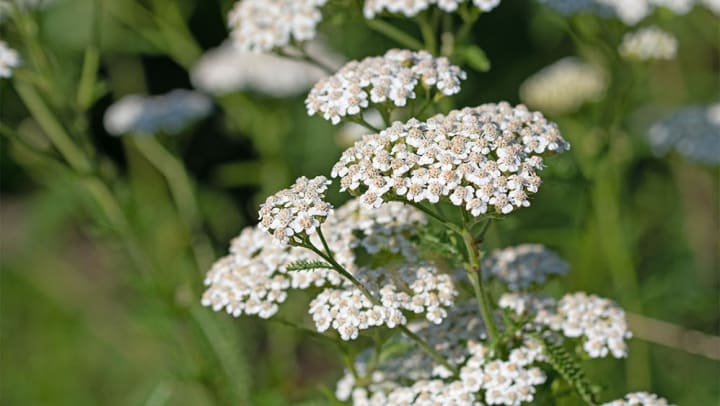
- California Poppy – Better Than Sleeping Pills:
Quick Backyard Remedy: Gather any of these: leaves, flowers, or stems. Cut finely, add to a cup or pot, and pour hot water. Let it steep for about 10 minutes. Drink warm just before bed for deep, uninterrupted, and restful sleep that night.
Garden Uses: With extremely high levels of pollen production, the poppy is an important food source for beneficial insects. It also needs very little water, so the other plants will get more.
Recipes You'll Find in Brochure: Deep sleep tincture, analgesic salve, sleep tea blend, California poppy decoction for head lice, California poppy vinegar, California poppy infusion.
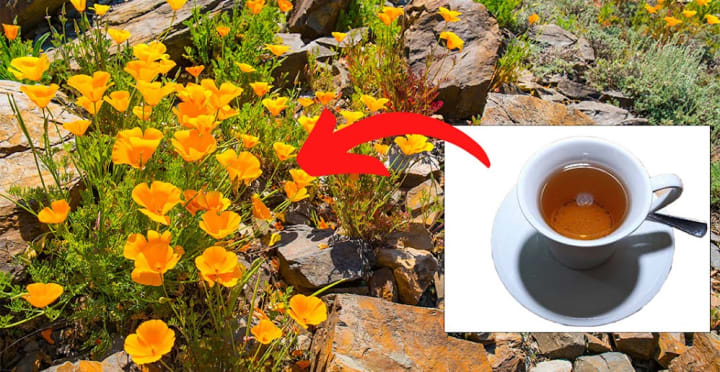
- Marshmallow – The Most Powerful Plant for a Healthy Digestive System:
Quick Backyard Remedy: Pull out a few marshmallow roots, wash off the dirt, and add them to a glass jar or cup. Cover with ice-cold water and let the mucilage extract for a few hours. Drink for a soothing and restorative effect all along your digestive tract, from mouth to colon.
Garden Uses: Painted lady butterflies are attracted to it, and native pollinators cover its blossoms all summer long.
Recipes You'll Find in Brochure: Cold root infusion for heartburn and reflux, stomach tea, marshmallow poultice for skin repair, decoction for stubborn coughs, throat syrup, marshmallow salve.
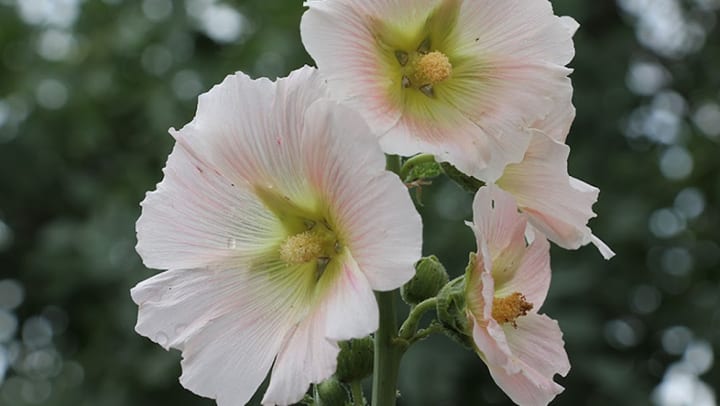
- Chamomile – The Natural Antibiotic:
Quick Backyard Remedy: Take a handful of dried or fresh chamomile leaves and add them to a warm bath. Step inside to relax your entire body, especially sore muscles, and aching joints.
Garden Uses: Chamomile is known as “The Gardener’s Doctor” as it has the power to heal and enhance the growth of the plants around it.
Recipes You'll Find in Brochure: Chamomile compresses for irritated eyes, stomach tea, infused chamomile oil for wounds and skin ulcers, chamomile tincture for sciatica and rheumatic pain, eczema salve, chamomile sitz bath for hemorrhoids.
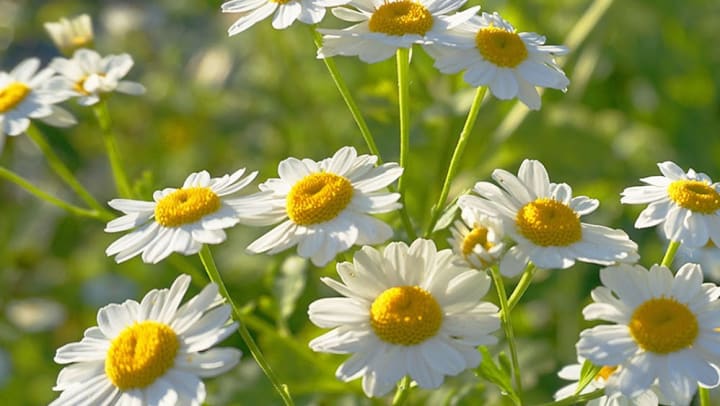
- Evening Primrose – A Natural Remedy for Skin and Nerves:
Quick Backyard Remedy: Grab a leaf or root of the plant and crush it to make a poultice. Apply it directly to a wound or skin rash to promote healing.
Garden Uses: This plant provides food and attracts numerous species of hawk moths, which tend to move pollen farther than bees or birds, as well as butterflies and bumblebees.
Recipes You'll Find in Brochure: Infused evening primrose oil for skin and nerves, anti-bruise poultice of native Americans, evening primrose tea for digestive issues and mood swings, revitalizing body balm, lung tonic, cough and sore throat mixture, cold-pressed seed oil
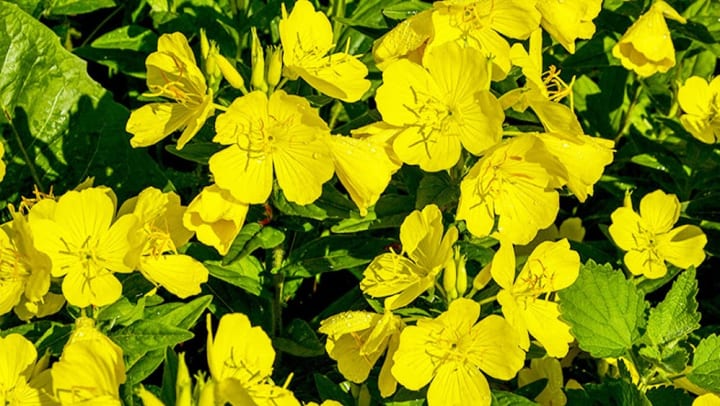
- Lavender – The Perennial Anti-Inflammatory Herb:
Quick Backyard Remedy: Gather some fresh lavender from your garden and put it in a small herb pouch. Place the pouch inside your sleeping pillow or under your mattress. It will ward off mosquitos and other insects and help you fall asleep faster.
Garden Uses: Just as it banishes bugs from your closet, it also banishes pests from the garden. It’s also one of the best companion plants out there, helping many others reach their full potential. It attracts many species of butterflies, including painted ladies, woodland skippers, and tiger swallowtails.
Recipes You'll Find in Brochure: Lavender sleep tincture; lavender tea for anxiety; lavender oil for fungal infections, acne, dry and blotchy skin, and psoriasis; lavender hair mask; lavender salve for chapped lips, cracked cuticles, rough elbows, and feet.
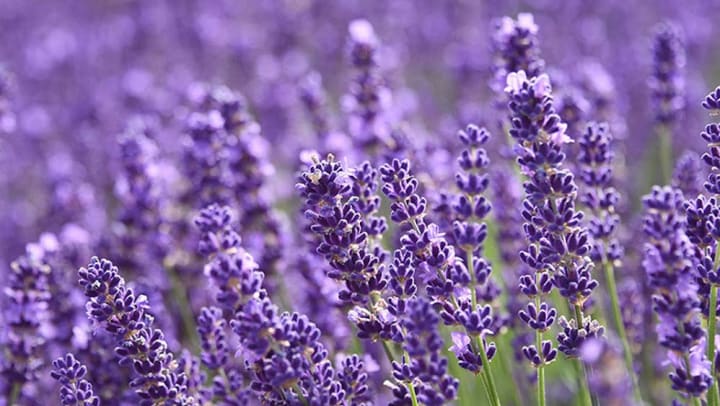
- Echinacea – The Most Powerful Immunity Plant You Should Grow:
Quick Backyard Remedy: Dig up some echinacea roots and slice them rather thinly. Put them in a pot with water and let everything simmer for 30 minutes. Drink hot for an immune boost at the first sign of a cold or any other illness.
Garden Uses: Echinacea helps keep plants moist and prevents weeds from spreading and taking over your backyard pharmacy.
Recipes You'll Find in Brochure: Immune-stimulating echinacea tincture, antiseptic mouthwash, echinacea tisane, echinacea oil for inflammation, anti-germ skin salve, root decoction for pains and aches.
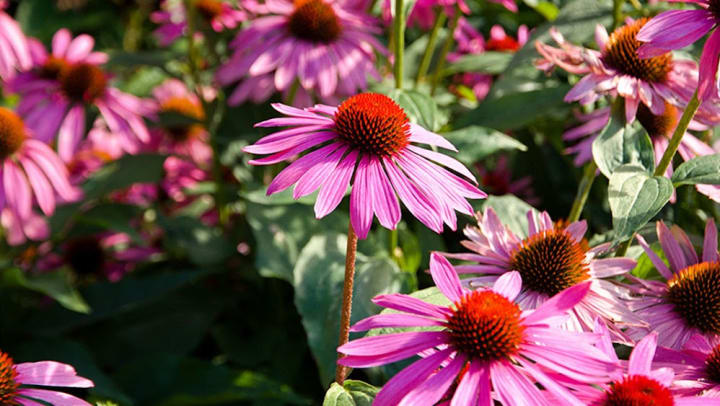
- Calendula – The Herb You Need to Keep Close During Dark Times:
Quick Backyard Remedy: During the Civil War, calendula flowers were packed directly into open wounds, and they were used by surgeons when dressing wounds to promote healing and prevent infection.
Garden Uses: Calendula helps repel insect pests and benefits the soil by forming active relationships with soil fungi.
Recipes You'll Find in Brochure: Calendula flower infused oil for most skin problems, calendula salve to rub over wounds and scars, calendula soak for itches and rashes, calendula tea for sore throat and mouth ulcers, calming calendula spray for burns, tea for irritated eyes and stomach, protective skin lotion, calendula extract for skin ulcers and eczema, anti-inflammatory ice.
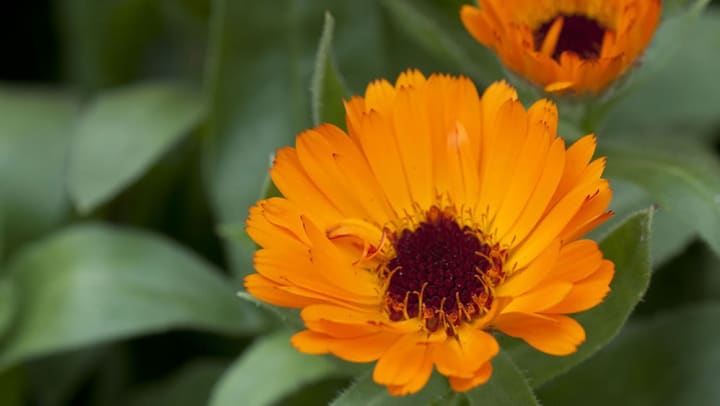
- Feverfew – Nature’s Aspirin for Fevers and Migraines:
Quick Backyard Remedy: Chew some of its leaves raw whenever you have a fever or feel a migraine attack is about to strike (very important to use before it does).
Garden Uses: Feverfew repels pests, hides other plants from them, and also attracts beneficial insects such as hoverflies and tachinid flies to your garden.
Recipes You'll Find in Brochure: Oil for inflamed joints, natural insect repellant, anti-migraine tincture, salve for eczema, rosacea and acne, feverfew tincture, feverfew febrifuge tea, feverfew compress for bruised skin.
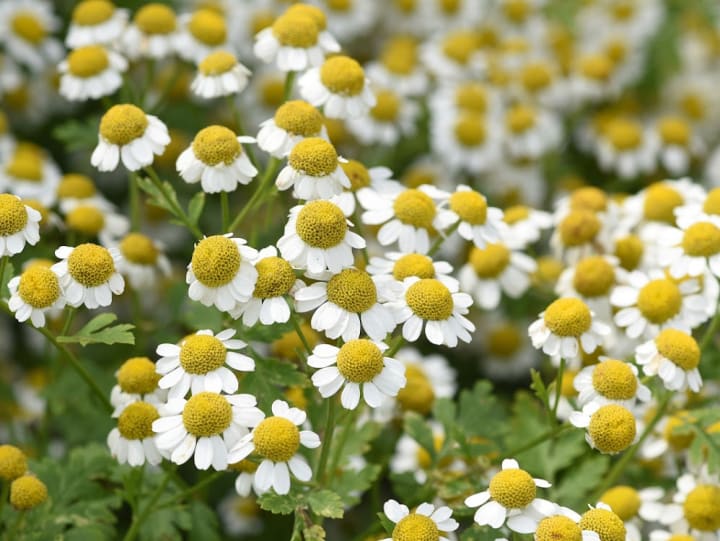
Click here if you are interested in planting these medicinal plants. If you’ve never planted anything before, you’ll have no trouble growing these 10 plants. You will find details on how to plant, grow, and harvest each one in the free Medicinal Guide you'll receive with your Medicinal Garden Kit.
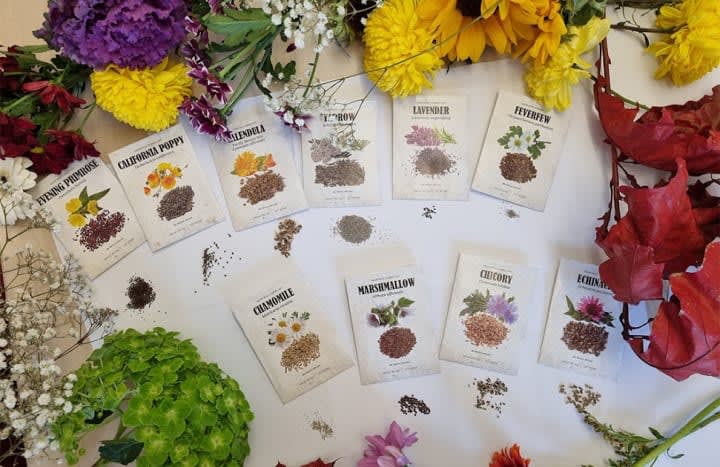
Additional: What You'll Find in Your Medicinal Garden Kit?
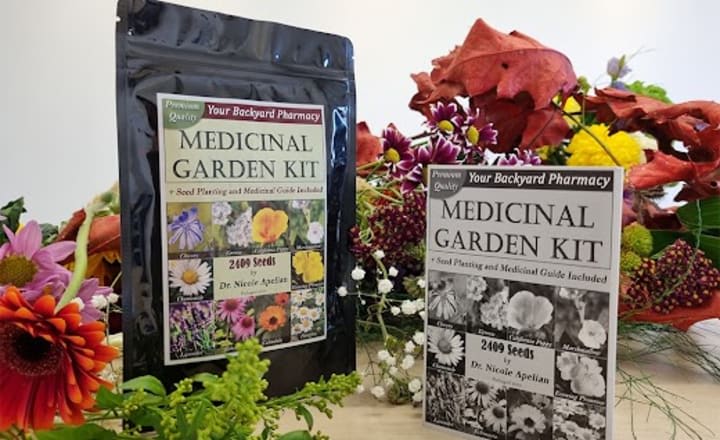
The Medicinal Garden Kit includes 10 smaller packages with 2,409 high-quality, NON-GMO seeds packaged in the US. A free Medicinal Guide is included with details on how to plant, grow, and harvest each of the 10 plants. The kit offers a unique collection of seeds that cannot be found anywhere else and is a good investment for those interested in natural health remedies. The seeds can be kept for future planting, and the kit is also suitable for those who want to be more self-reliant or prepare for emergencies. The 10 plants can be planted with vegetables and fruit trees, and most are perennials or self-seeding annuals.
The Medicinal Garden Kit comes with a 365-day money-back guarantee, indicating the creator's confidence in its effectiveness. It is suggested that the kit's cost will be a worthwhile investment due to the amount of money it will save in the long run, and there is no risk in trying it out since it comes with a money-back guarantee. The reader is encouraged to click here to get the kit without risk.
Conclusion
In conclusion, growing medicinal plants at home is not only a great way to incorporate natural remedies into your daily routine, but it can also be a fulfilling and relaxing hobby. With the right selection of plants and proper care, you can create a thriving garden that will provide you with an abundance of health and wellness benefits. By cultivating your own medicinal plants, you'll have easy access to a range of natural remedies that can help treat everything from minor skin irritations to more serious health conditions.
In addition to the physical benefits, growing medicinal plants can also have a positive impact on your mental and emotional well-being. Spending time in nature and caring for plants has been shown to reduce stress, improve mood, and promote a sense of calm and relaxation. It's also a great way to connect with others who share your passion for gardening and natural health remedies.
So whether you're looking to incorporate more natural remedies into your daily routine, or you simply want to try your hand at gardening, growing medicinal plants is a great way to achieve both. With a little bit of patience, dedication, and TLC, you can create a beautiful and beneficial garden that will provide you with years of health and wellness benefits.





Comments
There are no comments for this story
Be the first to respond and start the conversation.